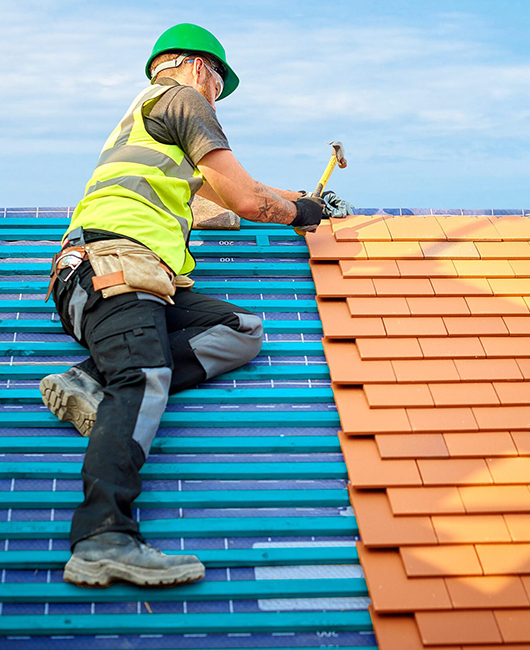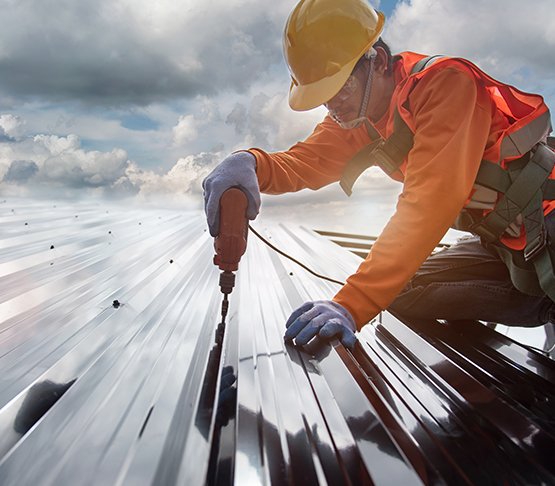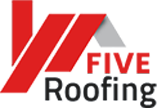When planning for commercial roofing in Sunland, it is important to understand the main components of a roofing system. Here are some of the main components in most common commercial roof structures.

The roof deck is the base layer of the roof system, usually made of wood, metal, or concrete. It provides structural support and serves as the foundation for the roof.
Insulation is installed over the roof deck to regulate temperature and improve energy efficiency. It helps prevent heat transfer, keeping the building cool in hot climates and reducing heating costs in colder regions
The membrane is the primary waterproofing layer of the roof. It can be made of various materials, such as EPDM (ethylene propylene diene terpolymer), PVC (polyvinyl chloride), TPO (thermoplastic olefin), or modified bitumen. The membrane provides resistance against water, UV rays, and other environmental elements
The roofing system includes various components such as flashings, sealants, adhesives, and fasteners. Flashings, typically made of metal, are installed around roof penetrations and edges to prevent water infiltration. Sealants and adhesives are used to create watertight seals and bond different components together.

Proper drainage is essential for commercial roofs to prevent water accumulation and potential damage. It includes gutters, downspouts, scuppers, and internal drains that collect and direct water away from the roof surface.
Roof coatings are applied as an additional protective layer on top of the membrane. They enhance the roof’s durability, reflectivity, and resistance to UV rays and weathering. Roof coatings can also improve energy efficiency by reducing heat absorption
Other components may be included depending on the specific requirements of the building and roof design. These can include skylights, vents, HVAC units, rooftop equipment, safety features, and rooftop access systems

Click on the button and get a free estimate for the services of the best roofing contractors in Sunland
Based on the type of establishment you run, you should choose the right design for commercial roofing in Sunland. Here are some of the options that you can consider
| Commercial Establishment | Ideal Roofing Design | Advantages |
|---|---|---|
| Office Buildings | Flat or Low-Slope Roof | – Provides space for HVAC equipment and rooftop access. – Allows for easy installation of solar panels and green roof systems. – Offers cost-effective construction and maintenance |
| Retail Stores | Steep-Slope or Flat Roof | – Allows for eye-catching architectural features and signage. – Provides ample space for rooftop installations, such as HVAC units or solar panels. – Offers versatility in design options and material choices. |
| Warehouses | Metal Roof | – Provides durability and resistance to fire, pests, and weather conditions. – Offers energy efficiency and potential cost savings. – Allows for easy installation and low maintenance requirements. |
| Restaurants | Built-Up Roof | – Offers insulation and protection against grease, smoke, and odors. – Provides fire resistance and durability in high-traffic areas. – Offers flexibility in design options and customizable features |
| Healthcare Facilities | Single-Ply Roof | – Provides excellent waterproofing and resistance to chemicals and contaminants. – Offers energy efficiency and environmental sustainability. – Allows for easy installation and repair of rooftop equipment. |
| Workshops | Steel Roof | – Provides strength and durability for heavy equipment and machinery. – Offers resistance to impact, fire, and extreme weather conditions. – Allows for easy installation of ventilation and extraction systems. |
| Factories | TPO Roof | – Provides excellent resistance to chemicals, oils, and industrial pollutants. – Offers energy efficiency and thermal insulation. – Allows for easy maintenance and repair of rooftop equipment. |
It is important to know about the different rules and regulations that apply to commercial roofing in Sunland. While working, one needs to ensure that all the rules are conformed to, to avoid issues later. Here are some common roofing laws that may apply
Roofing company in Sunland must adhere to local building codes, like the California Building Standards Code and the Sunland Municipal Code. These provide guidelines and standards for construction, safety, and structural integrity. Building codes often specify requirements for roof design, materials, installation methods, fire resistance, wind load capacity, and drainage
Zoning laws dictate how commercial properties can be used within specific areas. These regulations may impose restrictions on roof height, design, or appearance to ensure compatibility with the surrounding environment and maintain the area’s aesthetics
Some areas have environmental regulations that govern the installation and maintenance of commercial roofs. These regulations may address issues such as stormwater management, energy efficiency, green building practices, and the use of environmentally friendly roofing materials..
Safety regulations aim to protect workers and ensure safe working conditions during roof installation, repair, or maintenance. These regulations may require the use of safety equipment, fall protection systems, and compliance with Occupational Safety and Health Administration (OSHA) guidelines.
In areas with historic buildings or districts, there may be laws in place to preserve the architectural integrity and historical significance of commercial roofs. These laws may impose restrictions on alterations or require specific materials and designs to maintain the building’s historical character. Get in touch with us to know more.
Building Permit: In most cases, a building permit is required for commercial roofing projects. This permit ensures that the roofing work complies with local building codes, safety regulations, and structural requirements. It may involve submitting plans, specifications, and other relevant documents for review and approval.
Roofing Permit: You may require a specific roofing permit in addition to the building permit. This permit focuses specifically on the roofing aspects of the project and ensures compliance with roofing-related regulations, such as installation methods, materials, and fire ratings.
Electrical Permit: If the roofing project involves electrical work, such as the installation or modification of rooftop equipment or electrical connections, an electrical permit may be necessary. This permit ensures that the electrical work is performed by a licensed electrician and meets safety standards.
Mechanical Permit: If the project involves the installation, repair, or modification of mechanical systems, such as HVAC units or ventilation equipment, a mechanical permit may be required. This permit ensures that the mechanical work is performed correctly and complies with relevant codes and regulations.
Environmental Permit: Depending on the nature of the roofing project and local environmental regulations, an environmental permit may be necessary. This permit addresses concerns related to stormwater management, environmental impact, waste disposal, and compliance with environmental standards.
Please note, the specific permits required for commercial roofing in Sunland may vary based on local regulations and the scope of the roofing project.
Whether or not you need to close your business during commercial roofing work depends on several factors, including:
Safety: The safety of your employees and customers is of utmost importance. If the roofing work poses a safety risk or if there are concerns about falling debris or potential hazards, it may be necessary to temporarily close your business or restrict access to certain areas during the construction process.
Noise and Disruption: Roofing projects can be noisy and disruptive, especially if extensive repairs or replacements are involved. If the noise levels are expected to be high and could significantly affect your business operations or customer experience, it might be advisable to close or modify your business hours to minimize disruption.
Accessibility: If the roofing work requires blocking access to entrances, parking lots, or specific areas of your business, you may need to consider closing or making alternative arrangements for customers and employees to access your premises.
Legal and Insurance Considerations: Review any legal or insurance obligations related to business closure or safety during construction activities. Consult with your legal counsel and insurance provider to understand any requirements or potential liabilities associated with the roofing project.
The coverage for commercial roofing work may vary depending on the specific insurance policy and coverage options chosen by the business owner:
Weather-related damage: Insurance policies typically cover damage caused by severe weather events, such as windstorms, hailstorms, lightning strikes, or heavy rains. This coverage may include repairs or replacements of the roof, as well as any resulting damage to the interior of the building.
Accidental damage: Insurance policies may also cover accidental damage to the roof, such as damage caused by falling objects, accidents during construction or maintenance work, or other unforeseen incidents. Coverage may include repairs or replacements necessary to restore the roof to its pre-damaged condition.
Fire and vandalism: If a commercial roof is damaged or destroyed due to fire or vandalism, insurance policies often provide coverage for repairs or replacements. This coverage may extend to the roof structure, as well as any interior damage caused by the incident.